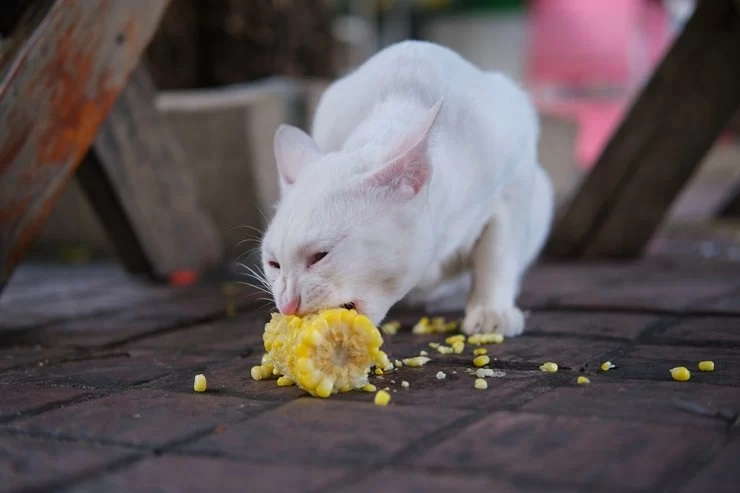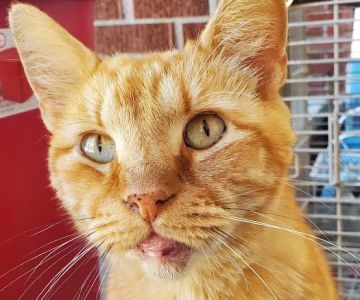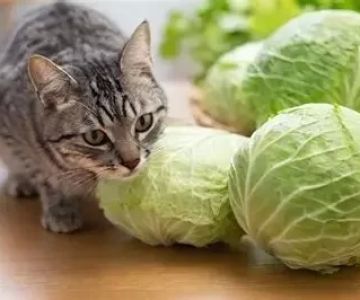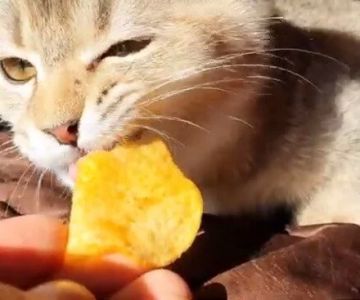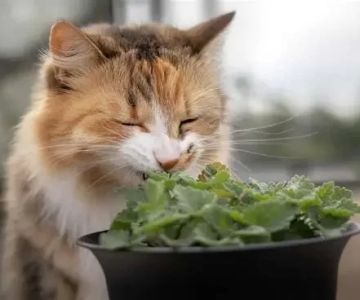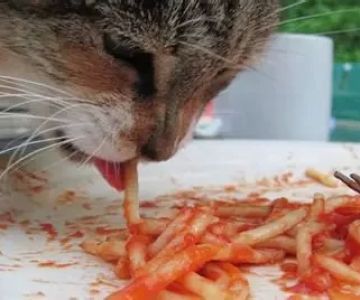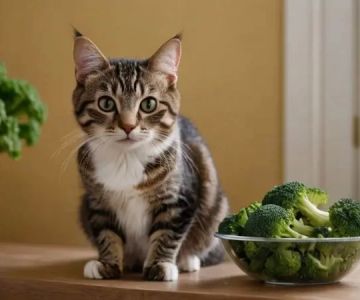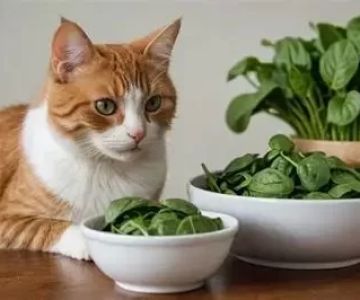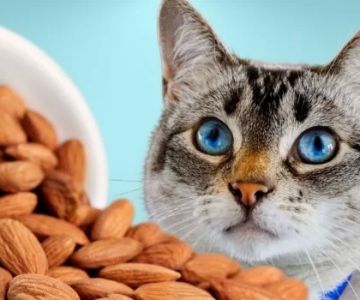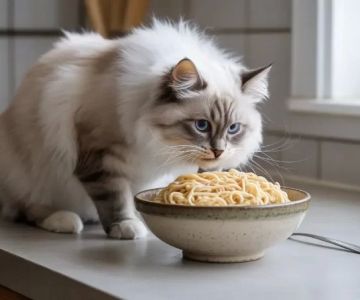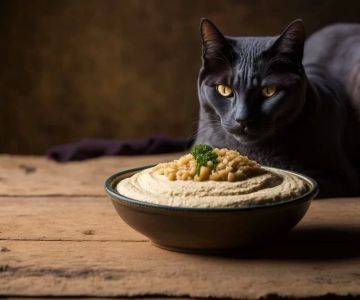- Understanding-Cats-and-Corn-Chips
- What-Corn-Chips-Are-Made-Of
- Are-Corn-Chips-Safe-for-Cats
- Potential-Health-Risks-of-Feeding-Cats-Corn-Chips
- Real-Life-Stories-and-Common-Mistakes
- Healthier-Snack-Alternatives-for-Cats
1. Understanding Cats and Corn Chips
If you’ve ever been relaxing with a bag of corn chips and your cat gave you that curious look—or even tried to sneak a bite—you’re not alone. Many cat owners wonder: can cats eat corn chips? The short answer is that while a single lick or crumb might not harm your feline, corn chips aren’t a healthy or recommended snack for cats. Cats are obligate carnivores, meaning their bodies are built to process protein and fat, not the high-carb, high-sodium ingredients found in processed human snacks.
To truly understand whether corn chips are safe for cats, we need to take a closer look at what they contain and how those ingredients interact with a feline’s digestive system.
2. What Corn Chips Are Made Of
2.1 The main ingredients
Most corn chips are made from ground corn, vegetable oil, and salt. Some brands also include artificial flavorings, preservatives, and seasonings such as onion powder, garlic powder, and cheese flavoring. While these may sound harmless to humans, certain additives can be dangerous for pets.
2.2 The seasoning issue
Flavored chips often contain ingredients that are toxic to cats, such as onion or garlic powder. Even small amounts of these substances can cause damage to red blood cells, leading to anemia. Additionally, the high sodium levels in corn chips can put strain on your cat’s kidneys and heart over time.
2.3 Fat and oil content
While cats need some fat in their diet, the type and amount found in fried snacks like corn chips are not beneficial. Excessive oils can upset your cat’s stomach and contribute to obesity or pancreatitis, especially in older or less active cats.
3. Are Corn Chips Safe for Cats?
3.1 The occasional taste
If your cat manages to snag a small piece of a plain, unsalted corn chip, it’s unlikely to cause harm. However, this should never become a habit. Cats don’t process carbohydrates efficiently, and empty-calorie snacks can lead to digestive upset or long-term health issues.
3.2 The problem with salt
Corn chips are notoriously high in sodium. A single chip can contain more salt than your cat should consume in an entire day. High sodium intake can lead to dehydration, increased blood pressure, and in extreme cases, sodium ion poisoning. Symptoms include vomiting, diarrhea, tremors, and even seizures.
3.3 Hidden additives
Many store-bought corn chips contain flavor enhancers or artificial colors that can irritate your cat’s stomach. Even “natural” chips might be cooked in oils like canola or sunflower, which aren’t ideal for feline digestion. This makes processed snacks a risky choice, even in small doses.
4. Potential Health Risks of Feeding Cats Corn Chips
4.1 Digestive upset
One of the first signs that your cat may have eaten something unsuitable is an upset stomach. Vomiting, diarrhea, or excessive thirst can occur if your cat ingests too many chips or flavored crumbs. The combination of fat and salt can quickly irritate a sensitive digestive tract.
4.2 Long-term dietary effects
Feeding your cat snacks like corn chips can contribute to poor dietary balance. Cats need specific nutrients such as taurine, which are only found in meat. Over time, substituting even small amounts of their regular food with unhealthy snacks can lead to nutritional deficiencies.
4.3 Sodium toxicity and dehydration
In severe cases, too much salt can lead to sodium ion poisoning. This condition can cause muscle tremors, lethargy, or in extreme cases, neurological symptoms. Always make sure your cat has access to fresh water if they accidentally ingest salty foods.
5. Real-Life Stories and Common Mistakes
One pet owner from Florida shared a story about her cat, Luna, who loved to lick corn chip crumbs off the couch. Within hours, Luna began vomiting and refused to eat. After a visit to the vet, it turned out she had mild sodium toxicity. She recovered quickly—but it served as a warning to her owner about how even small treats can have big consequences.
At Hidden Brook Veterinary, veterinarians often see similar cases, especially around holidays when snacks are plentiful. Many cat owners underestimate how sensitive feline systems are to human foods, especially processed ones.
6. Healthier Snack Alternatives for Cats
6.1 Cat-safe treats
If you want to share snack time with your feline friend, opt for cat-specific treats that are formulated for their dietary needs. Freeze-dried chicken or salmon are popular, protein-rich options that mimic their natural diet.
6.2 Homemade options
Consider making your own cat treats using simple ingredients like boiled chicken, tuna, or plain pumpkin puree. These snacks are far healthier and provide real nutritional value. Avoid using salt, oil, or spices when preparing them.
6.3 Behavioral enrichment instead of snacks
Cats often beg for food out of curiosity or boredom, not hunger. Instead of feeding them human snacks, engage your cat with play sessions, puzzle feeders, or toys. This keeps them stimulated and less likely to seek out your food.
7. Expert Advice from Hidden Brook Veterinary
7.1 What veterinarians recommend
Veterinary experts from Hidden Brook Veterinary emphasize that moderation and awareness are key. While corn chips aren’t immediately toxic, they offer no nutritional benefit. A cat’s diet should always be meat-based and carefully balanced to support their health and longevity.
7.2 When to call the vet
If your cat consumes several chips or shows symptoms like vomiting, drooling, or fatigue, contact your veterinarian immediately. Quick action can prevent more serious complications, especially for kittens, senior cats, or those with pre-existing health issues.
7.3 Building better habits
It’s easy to slip into the habit of sharing human food, especially when our pets act adorable. But keeping your cat’s diet consistent and healthy will help avoid unnecessary vet visits and ensure they live a longer, happier life. For expert dietary guidance or safe treat recommendations, you can always visit Hidden Brook Veterinary for professional advice and product suggestions.

